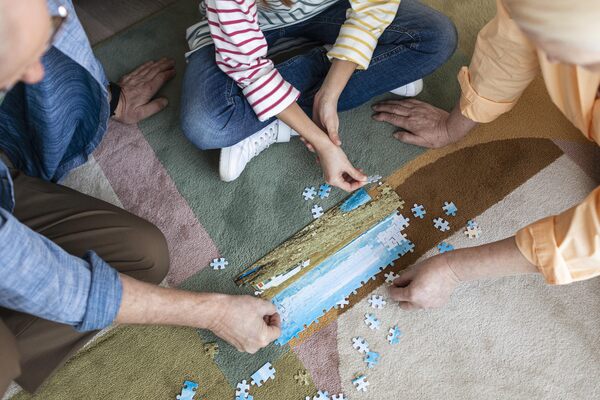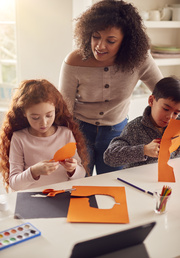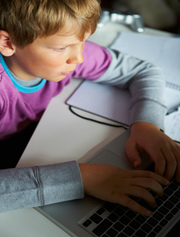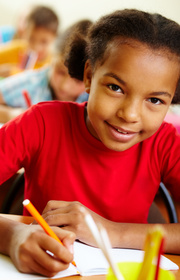Holistic Indoor Activities for Child Development
In an era where screens often dominate the bulk of our leisure time, finding activities that offer both entertainment and educational value for children is not just important; it’s actually quite essential. From board games that stimulate mental acuity to arts and crafts that nurture creativity, there are numerous ways to keep young minds active and engaged.
This article discusses eight safe, captivating, and educational indoor activities that not only entertain but also enrich your child’s developmental skills.
Unleash Strategy Through Board Games
Board games present an excellent opportunity for interactive learning. Whether it’s a game that calls for critical thinking or one that requires problem-solving skills, the benefits go beyond simple entertainment. Children learn to strategize, practice patience, and understand the concept of fair play. A carefully chosen game can even help your child become adept at math or language, furthering their academic skills in an enjoyable setting.
Convert Childhood Art into Digital Keepsakes
Switching your child’s tangible creations into digital versions using a mobile scanning app serves dual purposes – it not only immortalizes their art but also introduces them to valuable tech skills.
The app allows you to quickly and easily capture any image from your device’s camera and convert it into a PDF. This makes it a breeze for your child to understand how to scan a document with this tool.
Cultivate Creativity Through Arts and Crafts
Arts and crafts offer endless possibilities for imaginative expression. Providing a range of materials – be it paper, glue, or recycled goods – enables your child to create something uniquely their own. This form of creative freedom stimulates their imagination while enhancing fine motor skills. Plus, the process of planning and executing a project from start to finish gives them a rudimentary understanding of project management.
Encourage Reading for Lifelong Learning
Designating a reading time can help to foster a love for books. Tailor the selection of reading material to your child’s specific interests to ensure they stay engaged. Reading enhances vocabulary, stimulates imagination, and provides a foundational skill set that benefits them academically and personally. Moreover, it presents opportunities for family bonding, especially if you take turns reading out loud and discussing the storyline.
Solve Puzzles to Enhance Cognitive Skills
Working on puzzles is more than a way to pass the time; it also offers substantial cognitive benefits. Puzzles teach children about spatial relationships and improve their hand-eye coordination. Selecting age-appropriate puzzles will keep your child engaged without becoming overly frustrated. The joy of putting that final piece in place will boost their mood while enhancing their problem-solving skills!
 Image via Freepik
Image via FreepikBoost Confidence with Karaoke Nights
Karaoke is not just a form of entertainment; it can also be a confidence-building exercise. Singing in front of family members helps kids become comfortable with self-expression and receiving constructive feedback. It improves their listening skills and sense of rhythm as well, while providing an amusing way to learn new words and phrases.
Quench Curiosity Through Trivia Games
Hosting a trivia game is a creative way to make learning fun. Design questions that span a variety of topics – from history to geography to pop culture – to capture your child’s interests.
For instance, you could breach the topic of celebrity heights and use reliable sites dedicated specifically to that topic! The friendly competition that trivia games promote can motivate your child to seek out knowledge independently, strengthening their research skills and overall general knowledge.
Spark Interest in STEM Activities
Incorporating STEM activities can pave the way for a lifelong interest in science, technology, engineering, and math. Opt for simple home-based experiments or mini-engineering projects to make these subjects relatable and interesting. Activities like building a homemade volcano or crafting a simple circuit can make abstract scientific principles tangible, fostering a deeper understanding.
Conclusion
The right blend of engaging and educational indoor activities can make all the difference in a child’s development. From the cognitive benefits of board games to the creative freedom of arts and crafts, these activities offer more than just amusement – they also help shape well-rounded individuals. With these ideas in hand, you’re well-equipped to provide a more fulfilling and enriching environment for your child, right in the comfort of your home!





 Katie Brenneman is a passionate writer specializing in education, mental health, family lifestyle and online safety. When she isn’t writing, you can find her with her nose buried in a book or hiking with her dog, Charlie. You can follow her on
Katie Brenneman is a passionate writer specializing in education, mental health, family lifestyle and online safety. When she isn’t writing, you can find her with her nose buried in a book or hiking with her dog, Charlie. You can follow her on 




